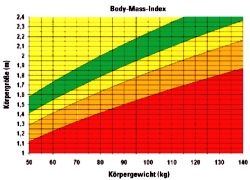BMI does not predict outcome for HD patients
The body mass index (BMI) is not a reliable indicator for obesity and therefore cannot predict the outcome for patients with heart disease.

Physicians know that obesity is a risk factor for developing heart disease. However, just how obesity affects people with established heart disease has remained unclear because studies have produced contradictory results, until now.
According to new study results reported by Francisco Lopez-Jimenez, and colleagues at the Mayo Clinic College of Medicine, in Maryland, USA, body mass index (BMI) - a number calculated from a person’s height and weight, which is commonly used as a measure of obesity - cannot reliably predict the outcome for patients with heart disease, because BMI is an unreliable indicator of obesity.
To investigate, the researchers combined data from 40 studies, involving about 250 000 people with heart disease; the average follow-up was four years. Most of the studies used BMI as a measure of obesity. The investigators found that patients with a low BMI had a higher risk of death than those with a normal BMI. Overweight patients had better survival and fewer heart problems than those with a normal BMI. Obese people who had had bypass surgery had a higher death rate when compared with people with a normal BMI, while severely obese people had a higher risk of a heart-related death but not death from other causes.
BMI categories
Underweight = <18·5
Normal weight = 18·5-24·9
Overweight = 25–29·9
Obesity = BMI of 30 or greater
The better outcomes for overweight people might be because they have more muscle than normal weight people, the authors said. They concluded that the results therefore demonstrate the inability of BMI to discriminate between body fat and lean muscle. ‘Rather than proving that obesity is harmless, our data suggest that alternative methods might be needed to better characterise individuals who truly have excess body fat, compared with those in whom BMI is raised because of preserved muscle mass,’ Dr Lopez-Jimenez explained.
In an accompanying Comment in The Lancet, Maria Grazia Franzosi, of the Istituto Mario Negri, Milan, Italy, said: ‘BMI can definitely be left aside as a clinical and epidemiological measure of cardiovascular risk,’ adding: ‘Uncertainty about the best index of obesity should not translate into uncertainty about the need for a prevention policy against excess bodyweight, which must be strongly supported.’
30.08.2006





